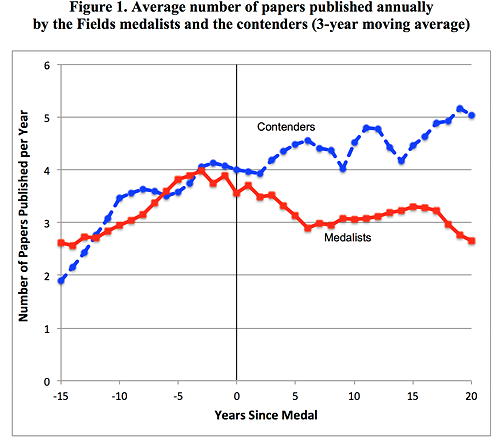Okay the question is really soft. But I am wondering about the relationship between one's productivity (namely quality of papers, number of papers published) and prizes received.
So here is my question:
What is your opinion on the following statement: Mathematician tends to have their productivity declined after receiving major prizes. The amount of decline depends on the prestige of the prize awarded.
While I know there are fields medalists who published nearly nothing after receiving the medal, there are also plenty who continue to work vigorously. But in general, will one become less productive after receiving prize? Does the prize usually achieve its function as a stimulus?

